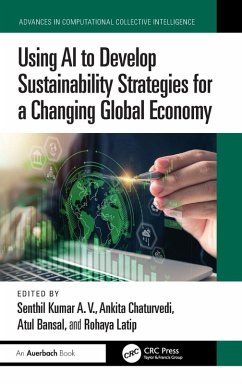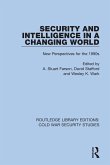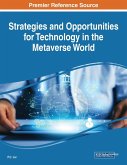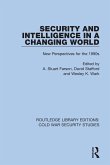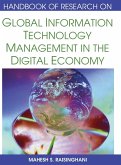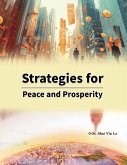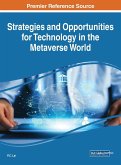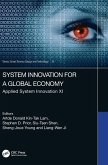Using AI to Develop Sustainability Strategies for a Changing Global Economy
Herausgeber: Kumar, A. V. Senthil; Bansal, Atul; Chaturvedi, Ankita
Using AI to Develop Sustainability Strategies for a Changing Global Economy
Herausgeber: Kumar, A. V. Senthil; Bansal, Atul; Chaturvedi, Ankita
- Gebundenes Buch
- Merkliste
- Auf die Merkliste
- Bewerten Bewerten
- Teilen
- Produkt teilen
- Produkterinnerung
- Produkterinnerung
The book explores changes that are required to adapt in a fast-evolving landscape due to the extraordinary circumstances triggered by climate change. It highlights the meaningful overall impact on industry globally by addressing key issues, trends, and future perspectives for sustainable development using Artificial Intelligence.
Andere Kunden interessierten sich auch für
![Security and Intelligence in a Changing World Security and Intelligence in a Changing World]() Security and Intelligence in a Changing World131,99 €
Security and Intelligence in a Changing World131,99 €![Strategies and Opportunities for Technology in the Metaverse World Strategies and Opportunities for Technology in the Metaverse World]() Strategies and Opportunities for Technology in the Metaverse World187,99 €
Strategies and Opportunities for Technology in the Metaverse World187,99 €![Security and Intelligence in a Changing World Security and Intelligence in a Changing World]() Security and Intelligence in a Changing World46,99 €
Security and Intelligence in a Changing World46,99 €![Handbook of Research on Global Information Technology Management in the Digital Economy Handbook of Research on Global Information Technology Management in the Digital Economy]() Handbook of Research on Global Information Technology Management in the Digital Economy225,99 €
Handbook of Research on Global Information Technology Management in the Digital Economy225,99 €![Strategies for Peace and Prosperity Strategies for Peace and Prosperity]() Shui Yin LoStrategies for Peace and Prosperity86,99 €
Shui Yin LoStrategies for Peace and Prosperity86,99 €![Strategies and Opportunities for Technology in the Metaverse World Strategies and Opportunities for Technology in the Metaverse World]() Strategies and Opportunities for Technology in the Metaverse World240,99 €
Strategies and Opportunities for Technology in the Metaverse World240,99 €![System Innovation for a Global Economy System Innovation for a Global Economy]() System Innovation for a Global Economy114,99 €
System Innovation for a Global Economy114,99 €-
-
-
The book explores changes that are required to adapt in a fast-evolving landscape due to the extraordinary circumstances triggered by climate change. It highlights the meaningful overall impact on industry globally by addressing key issues, trends, and future perspectives for sustainable development using Artificial Intelligence.
Produktdetails
- Produktdetails
- Advances in Computational Collective Intelligence
- Verlag: Taylor & Francis Ltd
- Seitenzahl: 314
- Erscheinungstermin: 20. November 2025
- Englisch
- Abmessung: 240mm x 161mm x 21mm
- Gewicht: 602g
- ISBN-13: 9781032572796
- ISBN-10: 1032572795
- Artikelnr.: 73328889
- Herstellerkennzeichnung
- Libri GmbH
- Europaallee 1
- 36244 Bad Hersfeld
- gpsr@libri.de
- Advances in Computational Collective Intelligence
- Verlag: Taylor & Francis Ltd
- Seitenzahl: 314
- Erscheinungstermin: 20. November 2025
- Englisch
- Abmessung: 240mm x 161mm x 21mm
- Gewicht: 602g
- ISBN-13: 9781032572796
- ISBN-10: 1032572795
- Artikelnr.: 73328889
- Herstellerkennzeichnung
- Libri GmbH
- Europaallee 1
- 36244 Bad Hersfeld
- gpsr@libri.de
Dr. A. V. Senthil Kumar is a professor and principal at the Nehru Institute of Information Technology and Management, Coimbatore, India. Dr. Ankita Chaturvedi is an accomplished academic and a dedicated Associate Professor at IIS University, Jaipur, India and has an impressive publication record with more than 53 research papers in reputable national and international journals. Dr. Atul Bansal is a self-motivated teacher with more than 24 years of experience in teaching, research, and administration at various universities throughout the world. He is currently Assistant Professor in Accounting, College of Business Administration, University of Bahrain, Kingdom of Bahrain. Dr. Rohaya Latip is Associate Professor at Faculty of Computer Science and Information Technology, University Putra, Malaysia. .
1. Unveiling the Transformative Influence of Machine Learning Techniques on
Business Data Analytics: A Comprehensive Exploration 2. AI-Powered Circular
Waste Management: Leveraging Cluster Approach Framework in Jammu and
Kashmir for Attaining Sustainable Development Goals 3. Artificial
Intelligence and Sustainable Economy: Opportunities and Challenges 4.
Animation Advertising: The Role of Cognitive and Emotional Response 5.
Suitability of Indoor Air Quality Monitoring Devices 6. Recent Trend and
Future Prospects of AI and Sustainable Finance: Using Natural Language
Processing Model. 7. AI Technology for Sustainable Fashion Consumer
Engagement: Overcoming Ethical Challenges 8. Harnessing Artificial
Intelligence for Sustainability in Higher Education 9. AI and Sustainable
Finance: A New Perspective on Data Collection 10. Artificial Intelligence
in Promoting Sustainable Agricultural Practices for Better Economic Growth
in India 11. The Use of Artificial Intelligence to Enhance Sustainable
Development Goals: Public Sector Context 12. Artificial Intelligence,
Energy and Environment 13. Revamping Agricultural Entrepreneurship through
Artificial Intelligence: A Sustainability Perspective 14. AI and
Sustainability: Its Recent Trends and Future Prospects 15. Implementation
of Sustainable Goals using Artificial Intelligence: Recent Trends and
Future Prospects 16. Artificial Intelligence and Sustainable Agriculture
Business Data Analytics: A Comprehensive Exploration 2. AI-Powered Circular
Waste Management: Leveraging Cluster Approach Framework in Jammu and
Kashmir for Attaining Sustainable Development Goals 3. Artificial
Intelligence and Sustainable Economy: Opportunities and Challenges 4.
Animation Advertising: The Role of Cognitive and Emotional Response 5.
Suitability of Indoor Air Quality Monitoring Devices 6. Recent Trend and
Future Prospects of AI and Sustainable Finance: Using Natural Language
Processing Model. 7. AI Technology for Sustainable Fashion Consumer
Engagement: Overcoming Ethical Challenges 8. Harnessing Artificial
Intelligence for Sustainability in Higher Education 9. AI and Sustainable
Finance: A New Perspective on Data Collection 10. Artificial Intelligence
in Promoting Sustainable Agricultural Practices for Better Economic Growth
in India 11. The Use of Artificial Intelligence to Enhance Sustainable
Development Goals: Public Sector Context 12. Artificial Intelligence,
Energy and Environment 13. Revamping Agricultural Entrepreneurship through
Artificial Intelligence: A Sustainability Perspective 14. AI and
Sustainability: Its Recent Trends and Future Prospects 15. Implementation
of Sustainable Goals using Artificial Intelligence: Recent Trends and
Future Prospects 16. Artificial Intelligence and Sustainable Agriculture
1. Unveiling the Transformative Influence of Machine Learning Techniques on
Business Data Analytics: A Comprehensive Exploration 2. AI-Powered Circular
Waste Management: Leveraging Cluster Approach Framework in Jammu and
Kashmir for Attaining Sustainable Development Goals 3. Artificial
Intelligence and Sustainable Economy: Opportunities and Challenges 4.
Animation Advertising: The Role of Cognitive and Emotional Response 5.
Suitability of Indoor Air Quality Monitoring Devices 6. Recent Trend and
Future Prospects of AI and Sustainable Finance: Using Natural Language
Processing Model. 7. AI Technology for Sustainable Fashion Consumer
Engagement: Overcoming Ethical Challenges 8. Harnessing Artificial
Intelligence for Sustainability in Higher Education 9. AI and Sustainable
Finance: A New Perspective on Data Collection 10. Artificial Intelligence
in Promoting Sustainable Agricultural Practices for Better Economic Growth
in India 11. The Use of Artificial Intelligence to Enhance Sustainable
Development Goals: Public Sector Context 12. Artificial Intelligence,
Energy and Environment 13. Revamping Agricultural Entrepreneurship through
Artificial Intelligence: A Sustainability Perspective 14. AI and
Sustainability: Its Recent Trends and Future Prospects 15. Implementation
of Sustainable Goals using Artificial Intelligence: Recent Trends and
Future Prospects 16. Artificial Intelligence and Sustainable Agriculture
Business Data Analytics: A Comprehensive Exploration 2. AI-Powered Circular
Waste Management: Leveraging Cluster Approach Framework in Jammu and
Kashmir for Attaining Sustainable Development Goals 3. Artificial
Intelligence and Sustainable Economy: Opportunities and Challenges 4.
Animation Advertising: The Role of Cognitive and Emotional Response 5.
Suitability of Indoor Air Quality Monitoring Devices 6. Recent Trend and
Future Prospects of AI and Sustainable Finance: Using Natural Language
Processing Model. 7. AI Technology for Sustainable Fashion Consumer
Engagement: Overcoming Ethical Challenges 8. Harnessing Artificial
Intelligence for Sustainability in Higher Education 9. AI and Sustainable
Finance: A New Perspective on Data Collection 10. Artificial Intelligence
in Promoting Sustainable Agricultural Practices for Better Economic Growth
in India 11. The Use of Artificial Intelligence to Enhance Sustainable
Development Goals: Public Sector Context 12. Artificial Intelligence,
Energy and Environment 13. Revamping Agricultural Entrepreneurship through
Artificial Intelligence: A Sustainability Perspective 14. AI and
Sustainability: Its Recent Trends and Future Prospects 15. Implementation
of Sustainable Goals using Artificial Intelligence: Recent Trends and
Future Prospects 16. Artificial Intelligence and Sustainable Agriculture

